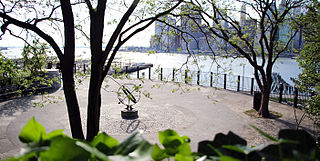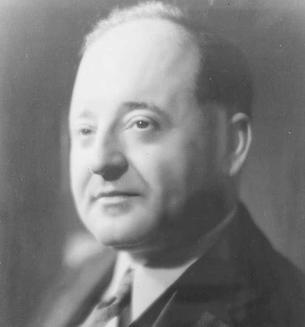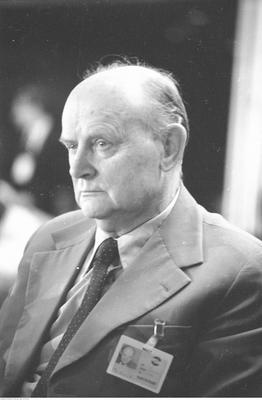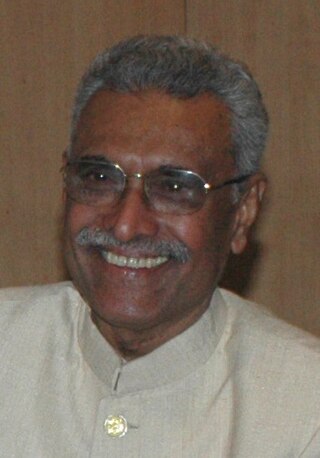
Rural sociology is a field of sociology traditionally associated with the study of social structure and conflict in rural areas. It is an active academic field in much of the world, originating in the United States in the 1910s with close ties to the national Department of Agriculture and land-grant university colleges of agriculture.

Ulrich Beck was a German sociologist, and one of the most cited social scientists in the world during his lifetime. His work focused on questions of uncontrollability, ignorance and uncertainty in the modern age, and he coined the terms "risk society" and "second modernity" or "reflexive modernization". He also tried to overturn national perspectives that predominated in sociological investigations with a cosmopolitanism that acknowledges the interconnectedness of the modern world. He was a professor at the University of Munich and also held appointments at the Fondation Maison des Sciences de l’Homme (FMSH) in Paris, and at the London School of Economics.
William Julius Wilson is an American sociologist, a professor at Harvard University, and an author of works on urban sociology, race, and class issues. Laureate of the National Medal of Science, he served as the 80th President of the American Sociological Association, was a member of numerous national boards and commissions. He identified the importance of neighborhood effects and demonstrated how limited employment opportunities and weakened institutional resources exacerbated poverty within American inner-city neighborhoods.

The American Sociological Association (ASA) is a non-profit organization dedicated to advancing the discipline and profession of sociology. Founded in December 1905 as the American Sociological Society at Johns Hopkins University by a group of fifty people, the first president of the association would be Lester Frank Ward. Today, most of its members work in academia, while around 20 percent of them work in government, business, or non-profit organizations.

Economic sociology is the study of the social cause and effect of various economic phenomena. The field can be broadly divided into a classical period and a contemporary one, known as "new economic sociology".

The Social Science Research Council (SSRC) is a US-based, independent, international nonprofit organization dedicated to advancing research in the social sciences and related disciplines. Established in Manhattan in 1923, it maintains a headquarters in Brooklyn Heights with a staff of approximately 70, and small regional offices in other parts of the world.
Thomas Burton Bottomore was a British Marxist sociologist.

Louis Wirth was an American sociologist and member of the Chicago school of sociology. His interests included city life, minority group behavior, and mass media, and he is recognised as one of the leading urban sociologists.
Juan José Linz Storch de Gracia was a German-born Spanish sociologist and political scientist specializing in comparative politics. He was Sterling Professor Emeritus of Sociology and Political Science at Yale University and an honorary member of the Scientific Council at the Juan March Institute. He is best known for his work on authoritarian political regimes and democratization.

The World Association for Public Opinion Research (WAPOR) is an international professional association of researchers in the field of survey research. It is a member organization of the International Science Council.

Michael Burawoy is a sociologist working within Marxist social theory, best known as the leading proponent of public sociology and the author of Manufacturing Consent: Changes in the Labor Process Under Monopoly Capitalism—a study on the sociology of industry that has been translated into a number of languages.
The British Sociological Association (BSA) is a scholarly and professional society for sociologists in the United Kingdom, and was founded in 1951. It publishes the academic journals Sociology, Work, Employment and Society, Sociological Research Online and Cultural Sociology as well as its membership newsletter Network and a monthly eNewsletter. Formerly, the British Journal of Sociology was the BSA's official journal, but it was replaced by Sociology some years after the latter had been established.

Ishwar Modi was an Indian sociologist and a pioneer of leisure studies in India. His work in this field has been widely reviewed in both India and abroad. He completed his master's degree in sociology and PhD from University of Rajasthan, Jaipur. He also worked for his PhD under the title Leisure, Mass Media and Social Structure (1985) at the Centre for the Study of Social Systems, Jawaharlal Nehru University, New Delhi, with a distinguished scholar Professor Yogendra Singh before joining the Department of Sociology at the University of Rajasthan as assistant professor of sociology.

Jan Szczepański was a Polish sociologist and politician. Professor of University of Łódź, its rector from 1952 to 1956. His works concentrated on theory of sociology, history of sociology, as well as studying of transformations of social structure.

Sociology is the study of human society that focuses on society, human social behavior, patterns of social relationships, social interaction, and aspects of culture associated with everyday life. Regarded as a part of both the social sciences and humanities, sociology uses various methods of empirical investigation and critical analysis to develop a body of knowledge about social order and social change. Sociological subject matter ranges from micro-level analyses of individual interaction and agency to macro-level analyses of social systems and social structure. Applied sociological research may be applied directly to social policy and welfare, whereas theoretical approaches may focus on the understanding of social processes and phenomenological method.
Alberto Martinelli is a scholar of social sciences, President of the International Social Science Council, former 14th president of the International Sociological Association (1998-2002) and professor of Political Science and Sociology at the University of Milan.
Jennifer Platt FAcSS is a sociologist who is Emeritus Professor at the University of Sussex, where she taught from 1964 to 2002. She has been President of the British Sociological Association in 1987–89, and edited its journal Sociology for 1985–87. She was a member of the International Sociological Association’s (ISA) executive from 1994–2002. Her research interests in the history of sociology have been reflected in her terms as Secretary and President of the ISA’s Research Committee on the History of Sociology, as Chair of the American Sociological Association’s Section on the History of Sociology, In 2002 she became an Academician of the Academy of Social Sciences. Her main publications include: The Affluent Worker in the Class Structure, 1969, ; Realities of Social Research, Sussex University Press, 1976; A History of Sociological Research Methods in America, 1920-1960, Cambridge University Press, 1996; and The British Sociological Association: a Sociological History, SociologyPress, 2003.

Tharailath Koshy Oommen is an Indian sociologist, author, teacher, and Professor Emeritus at the Centre for the Study of Social Systems, Jawaharlal Nehru University. He was awarded Padma Bhushan, the third highest Indian civilian award in 2008 for his services to the fields of education and literature by the President of India.
Ramkrishna Mukherjee was a scientist at the Indian Statistical Institute, Kolkata, President of the Indian Sociological Society (1973–75) and recipient of the Indian Sociological Society's Lifetime Achievement Award in 2005.

María Ángeles Durán Heras is a Spanish sociologist best known for being a pioneer in research on unpaid work, the social situation of women and their social and work environment, health economics, and inequality in the use of time. She was the first woman to attain a chair of sociology in Spain, in 1982. She was one of the first researchers in her field who carried out works with a feminist perspective in the Spanish academic world. In 1979, she was the founder and director of the Women's Studies Seminar of the Autonomous University of Madrid, the first university institute for women's studies created in Spain. In 2002 she received the Pascual Madoz National Research Award in Economic and Legal Sciences. Retired in 2012, she is currently active at the Center for Human and Social Sciences of the Spanish National Research Council (CSIC) as an ad honorem researcher.














